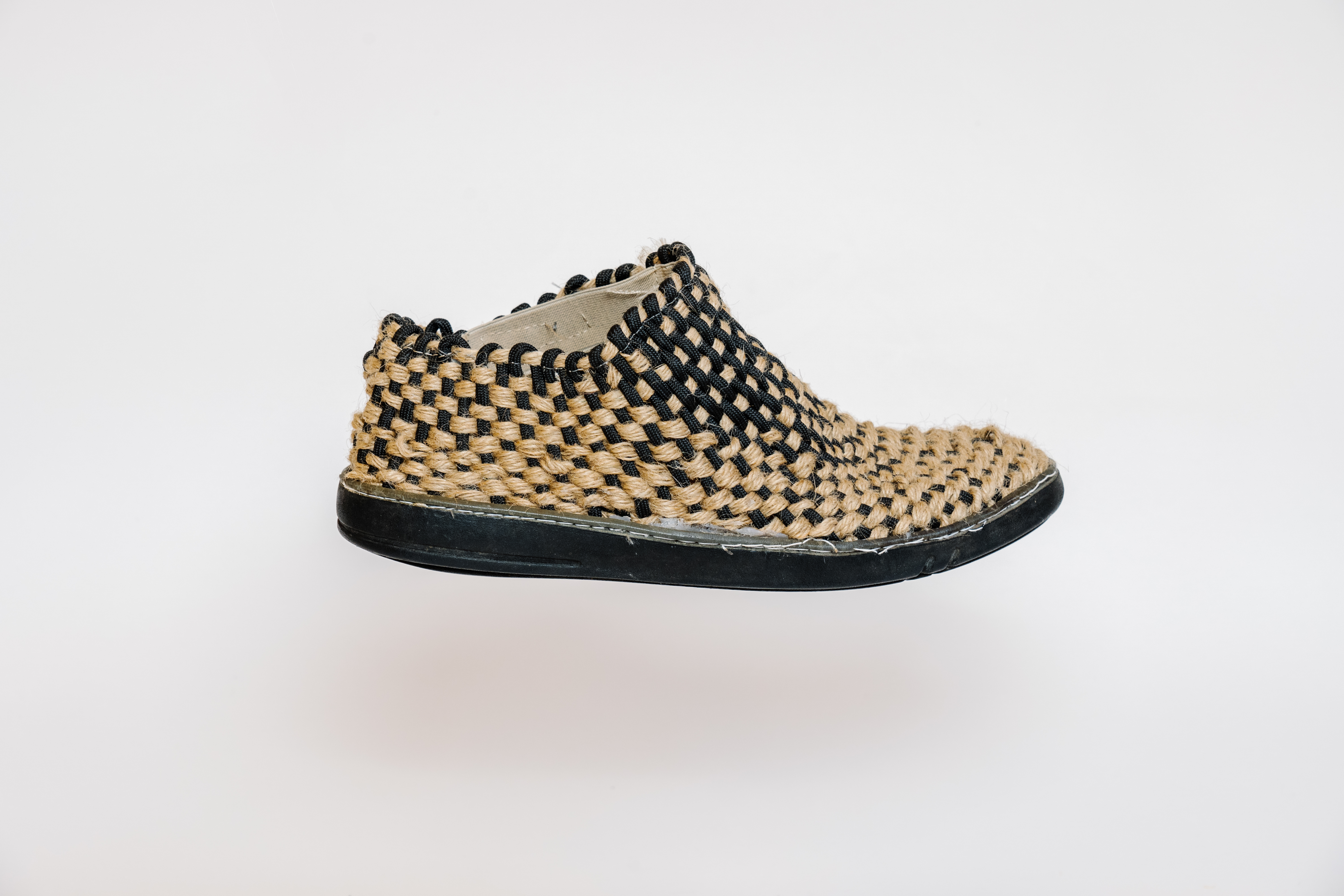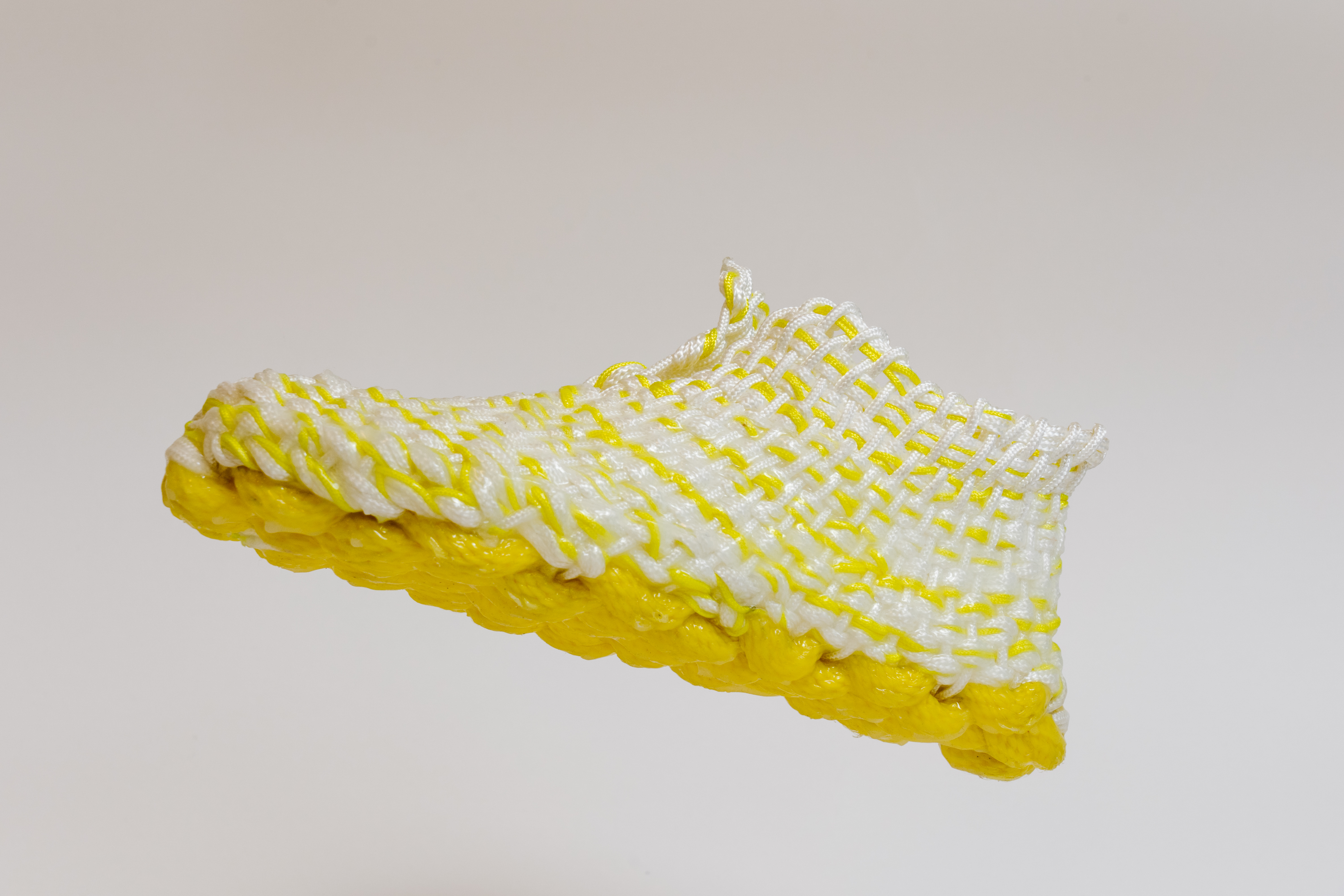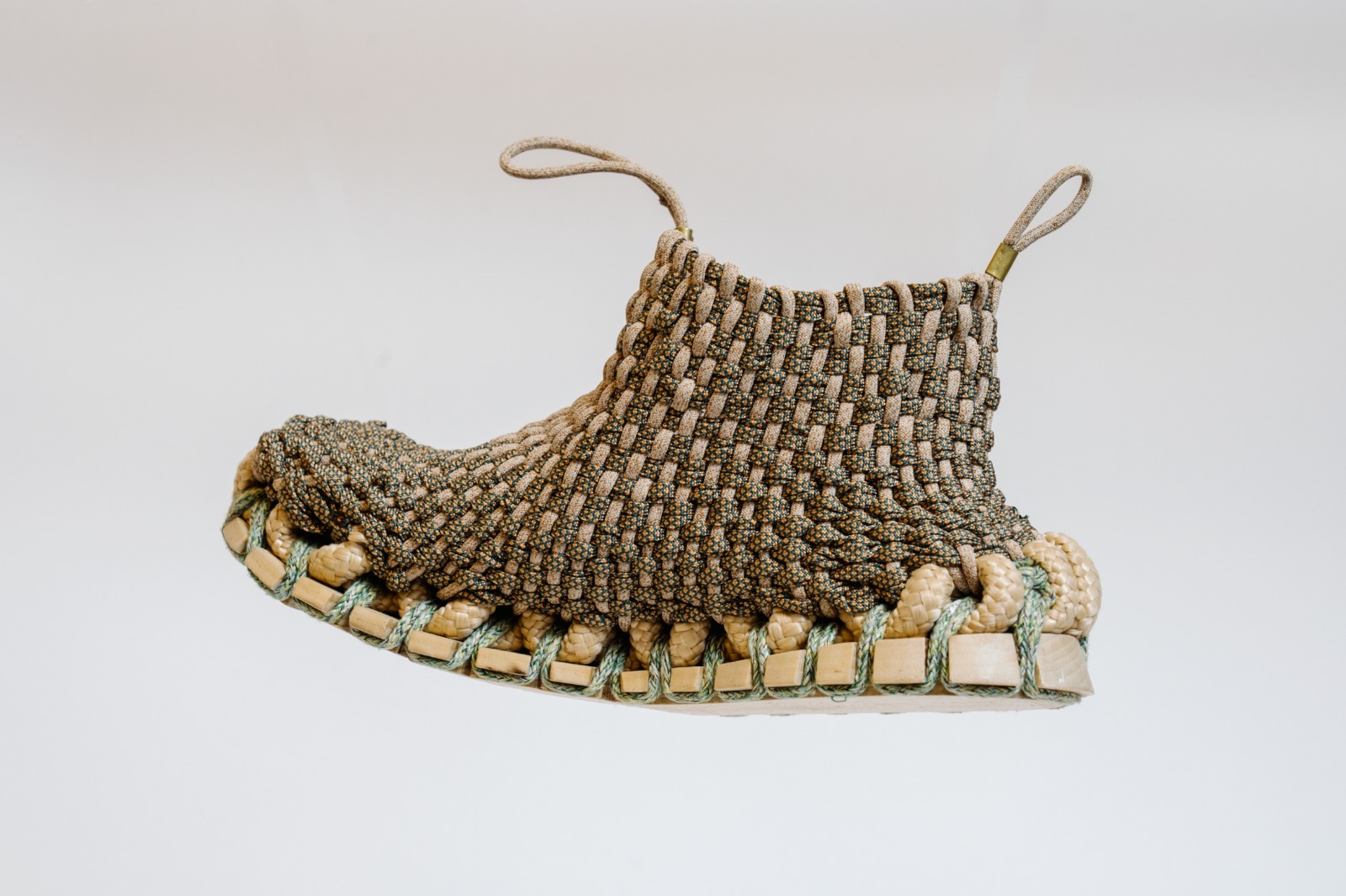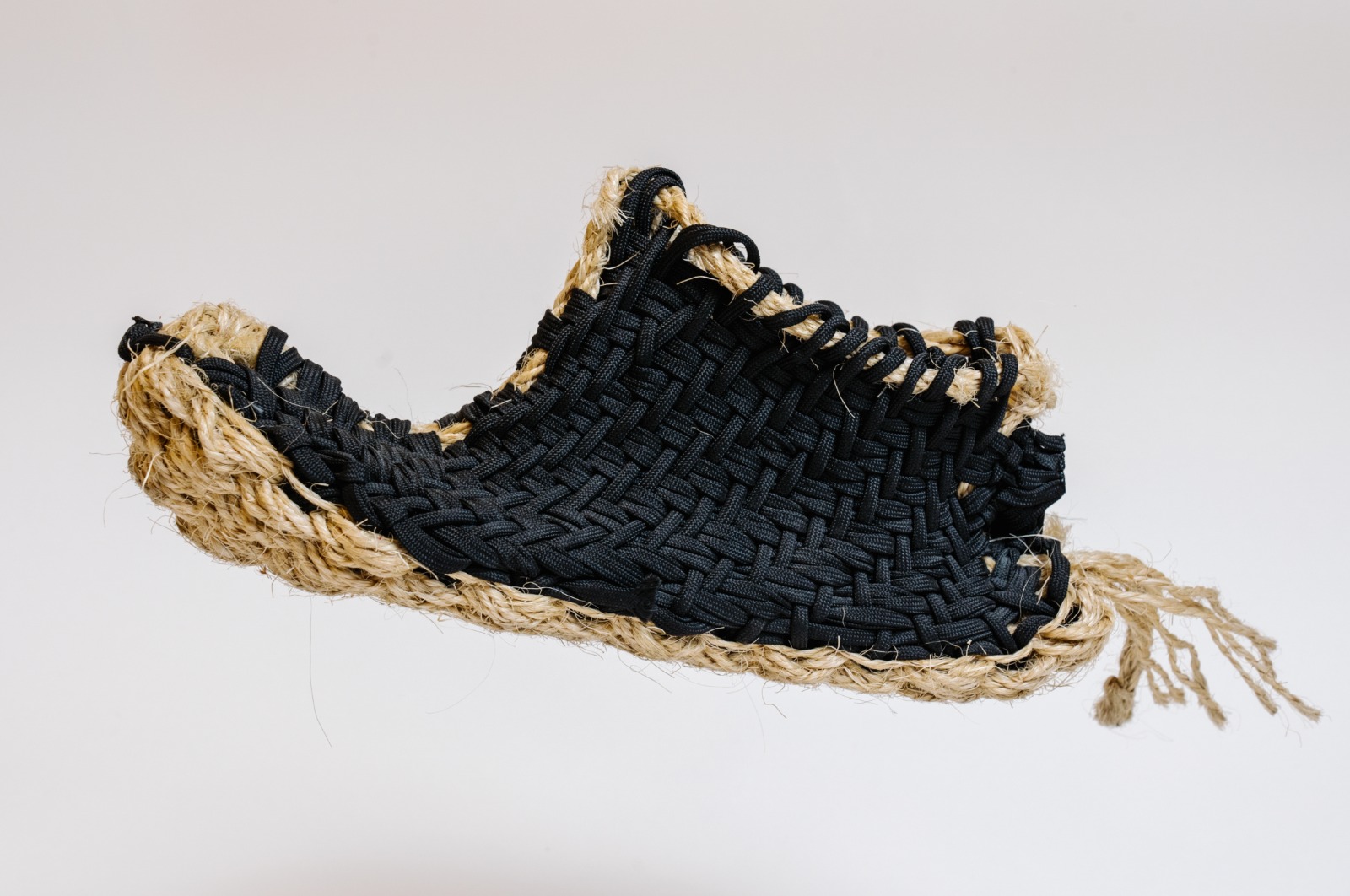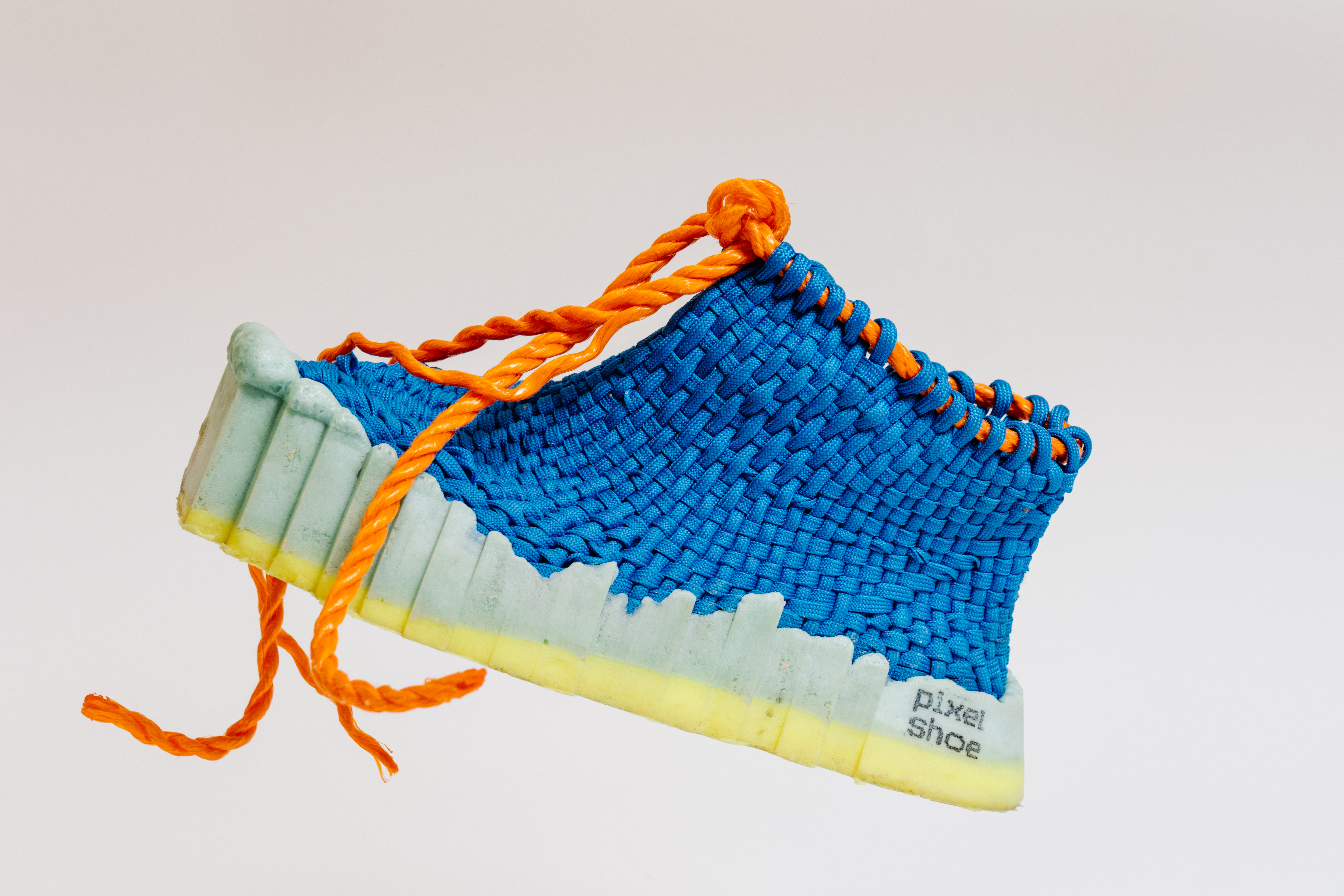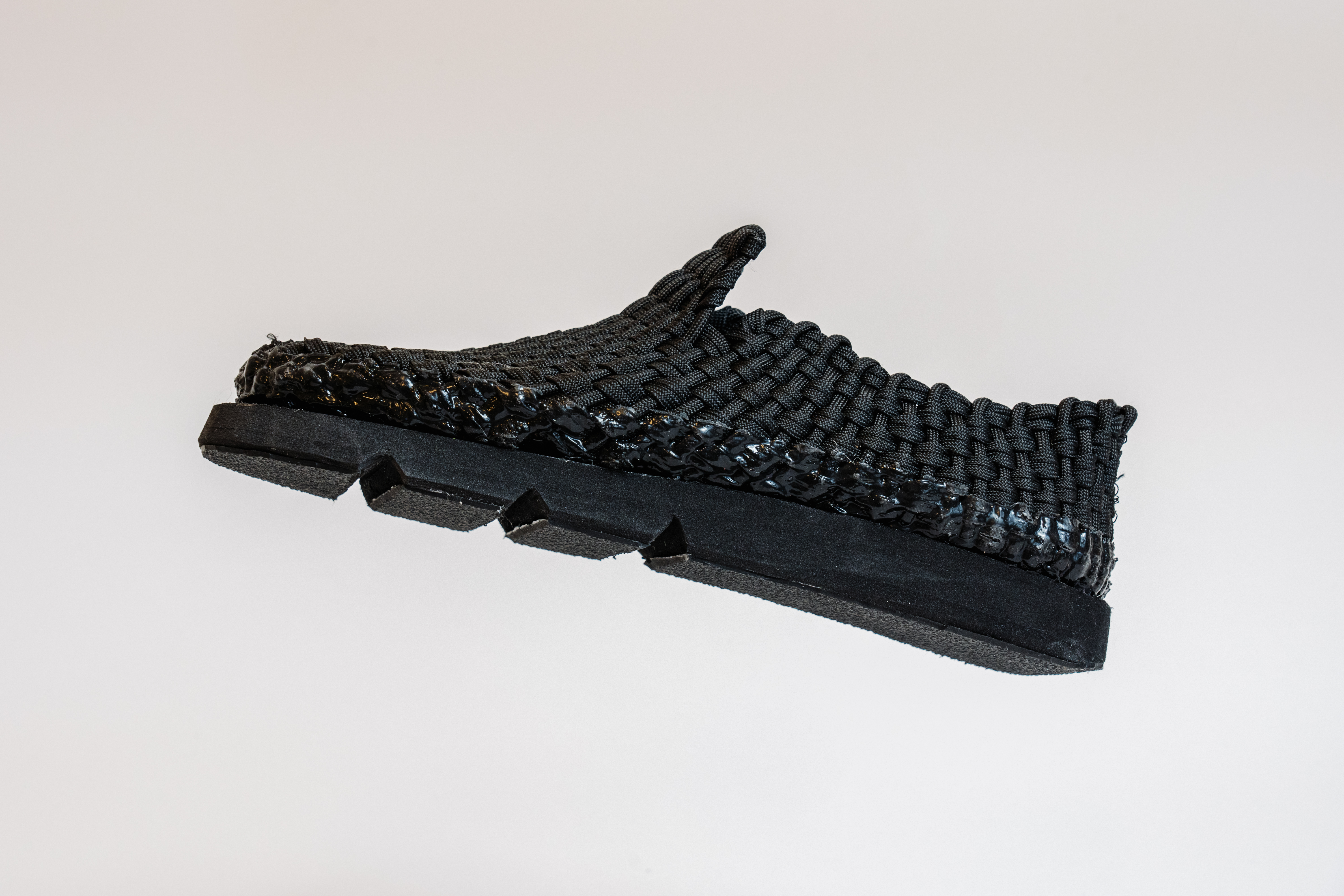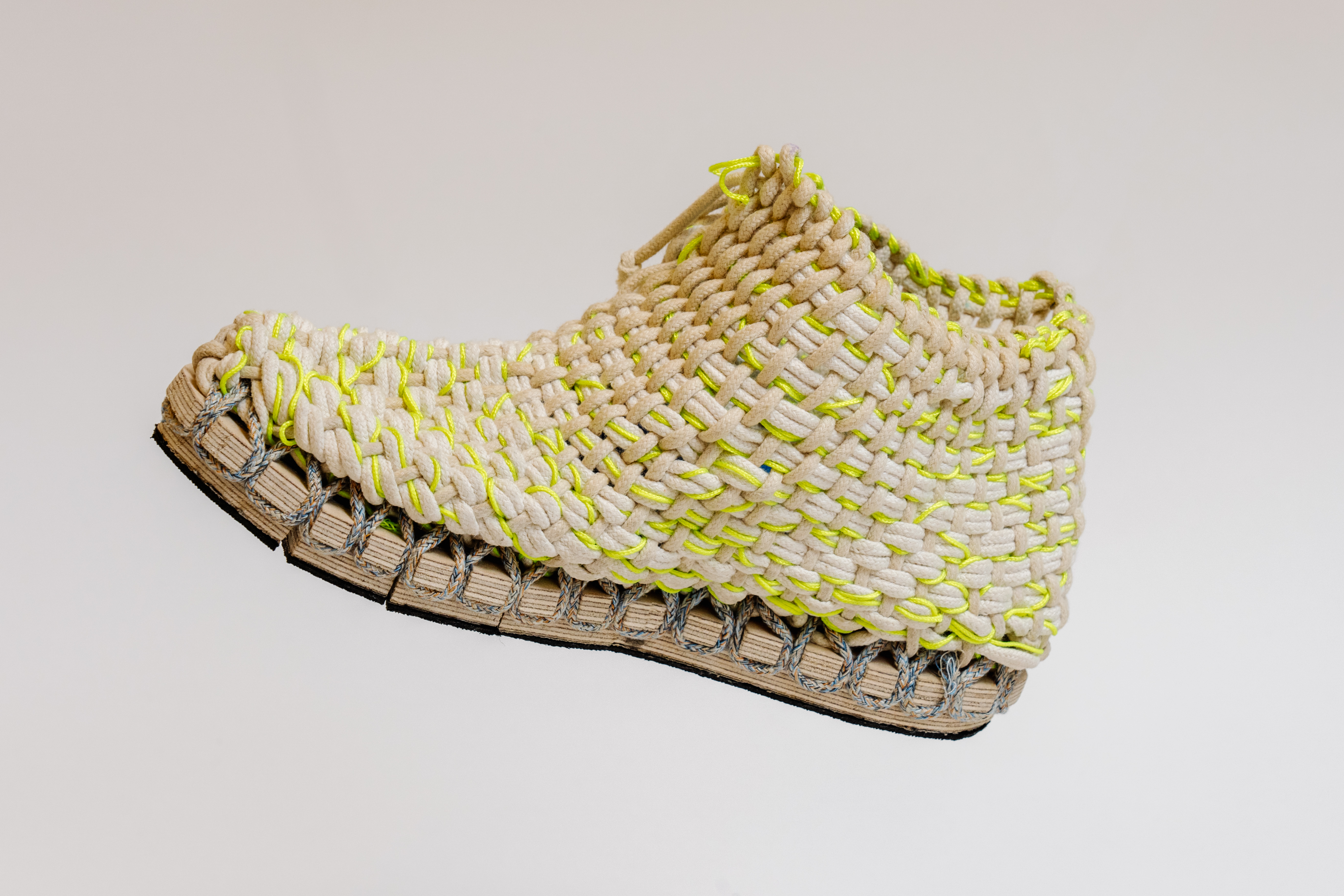INDUSTRIAL
DEVOLUTION:
FOOTWEAR
A project in two parts, ‘Industrial
Devolution’ is half shoe-making methodology, half experimental footwear
product. Frustrated by our disconnect with making and curious about the growing
distance between consumers and manufacturing, Ruben Warnshuis set about
decentralising production by creating a workshop where anyone can weave their
own shoes from rope using looms and moulds. Four wooden work stations invite us
to create footwear in four steps: weaving soles on a loom, threading upper
yarns through soles, weaving the upper, and finishing. By removing complexity
and devolving production into a low-tech process, ‘Industrial Devolution’ helps
us to learn self-sufficiency, expand our skills and material knowledge, and
nurture our relationships with the objects we own.
In the realm of footwear, innovation is often used for the wrong reasons: as a gimmick or marketing tool instead of adding value or overcoming problems. ‘Industrial Devolution: Footwear’ does the opposite, evolving new shoe structures using the project’s weaving workshop. This practical research resulted in a series of prototypes that not only show a range of conceptual, functional and aesthetic possibilities, they also show that there is no single answer on how to make a shoe. Rope soles, wooden soles, jute, sisal, nylon or polypropylene – each comes with its own properties, pros and cons. By establishing an alternative production process versatile enough to adapt footwear to user needs, Ruben Warnshuis breathes new life into apparel innovation.
In the realm of footwear, innovation is often used for the wrong reasons: as a gimmick or marketing tool instead of adding value or overcoming problems. ‘Industrial Devolution: Footwear’ does the opposite, evolving new shoe structures using the project’s weaving workshop. This practical research resulted in a series of prototypes that not only show a range of conceptual, functional and aesthetic possibilities, they also show that there is no single answer on how to make a shoe. Rope soles, wooden soles, jute, sisal, nylon or polypropylene – each comes with its own properties, pros and cons. By establishing an alternative production process versatile enough to adapt footwear to user needs, Ruben Warnshuis breathes new life into apparel innovation.



